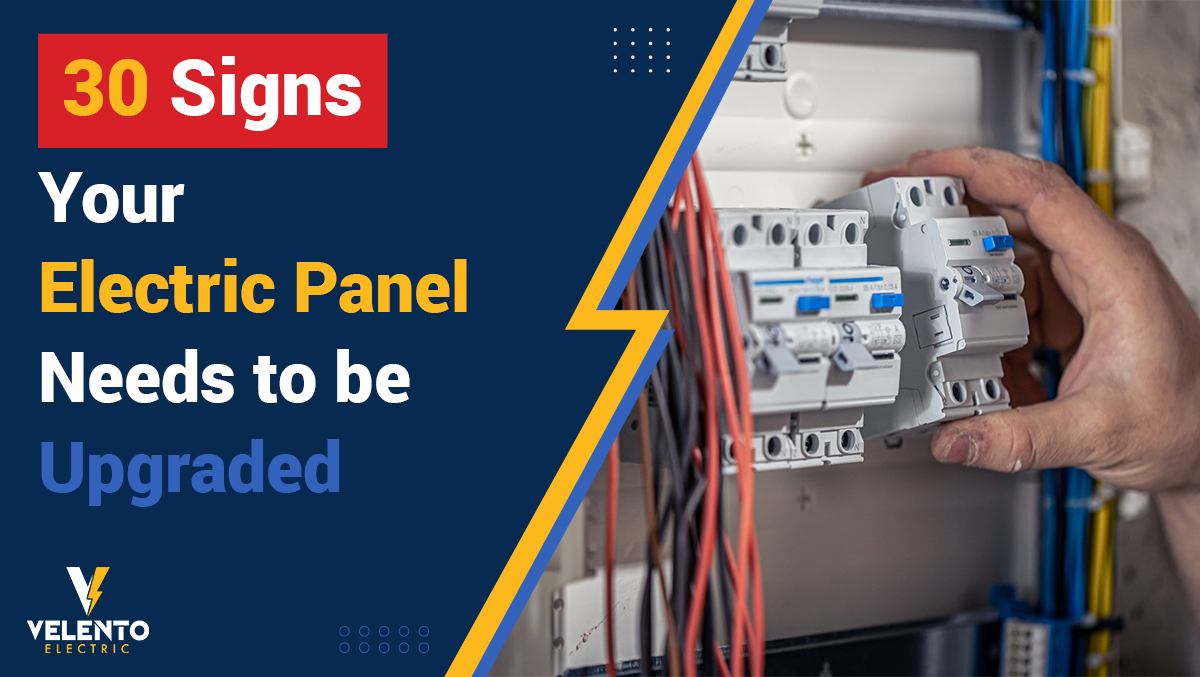Recognizing when your electric panel needs an upgrade is crucial for maintaining the safety and efficiency of your home’s electrical system. Here are 30 signs indicating that it’s time to call a licensed electrician for an upgrade, expanded with detailed explanations:
- Frequent Circuit Breaker Trips
Frequent tripping of circuit breakers suggests that your electrical panel is overloaded or that there is a short circuit somewhere in your system. Modern homes often have more electrical devices than older panels were designed to handle, necessitating an upgrade to accommodate the increased load and ensure safety. High-energy devices such as HVAC systems, washers, dryers, and kitchen appliances can easily overwhelm older panels. When a circuit breaker trips, it prevents the system from overheating and potentially causing a fire. However, frequent trips indicate that the system is under constant strain and cannot manage the electrical load efficiently.
- Flickering or Dimming Lights
If your lights flicker or dim when you turn on other appliances, it indicates that your electrical system is struggling to handle the load. This can be due to an outdated panel that can’t distribute power efficiently, leading to potential damage to your appliances and an increased risk of electrical fires. Flickering lights can also be a sign of loose wiring or overloaded circuits, both of which are serious issues that need addressing.
- Burning Smell
A persistent burning smell near your electrical panel is a serious fire hazard. It usually indicates overheating wires or components, possibly due to overloading or faulty wiring. Immediate inspection by a professional is essential to prevent potential fires and ensure safety. The smell of burning plastic or rubber is a clear indicator that the insulation around the wires is melting, which can lead to electrical fires if not addressed promptly.
- Buzzing or Humming Sounds
Buzzing or humming noises from the electrical panel can signal loose connections, overloaded circuits, or issues with the circuit breakers. These sounds indicate that electricity is not flowing smoothly, which can lead to overheating and potential fires if not addressed promptly. These sounds can also be a symptom of arcing faults, which occur when electrical current flows through an unintended path, creating a significant fire hazard.
- Warm or Hot Electrical Panel
An electrical panel that is warm or hot to the touch indicates that it is overheating. This can be caused by circuits being overloaded, faulty breakers, or poor wiring connections. Overheating is a serious fire hazard and requires immediate attention from a licensed electrician. The heat generated from an overloaded panel can deteriorate the insulation on wiring and other components, exacerbating the problem over time.
- Sparking Outlets or Panel
Sparks from outlets or the panel itself are a clear sign of serious electrical issues, such as loose connections or short circuits. Sparks can easily ignite flammable materials and lead to fires. An upgrade to a modern panel with proper safety features is necessary to prevent such hazards. Sparking can also indicate that the internal components of the panel are deteriorating, which can pose significant safety risks.
- Frequent Electrical Shocks
Experiencing electrical shocks when touching appliances or switches suggests grounding issues or faulty wiring. This could be a sign that your electrical panel and system are not providing adequate protection, increasing the risk of electrocution. Upgrading to a modern panel with improved safety features can mitigate these risks. Proper grounding ensures that any fault currents are safely redirected, preventing electrical shocks.
- Outdated Fuse Box
If your home still has an old fuse box instead of a modern circuit breaker panel, it’s time for an upgrade. Fuse boxes are less efficient and safe compared to modern circuit breaker panels. They can struggle to handle the electrical demands of modern appliances, increasing the risk of electrical fires. Circuit breakers offer better protection and can be reset rather than replaced, unlike fuses.
- Corroded or Damaged Wires
Visible signs of corrosion or damage to wires and cables near the panel indicate that your electrical system is deteriorating. Corroded wires can break easily, leading to poor connections and increased fire risk. An upgraded panel can ensure safer, more reliable wiring connections. Corrosion can occur due to exposure to moisture or other environmental factors and can compromise the integrity of your electrical system.
- Frequent Bulb Burnouts
Bulbs that frequently burn out or explode can indicate voltage fluctuations or poor connections in the lighting fixtures. This can be a sign that your current electrical panel is unable to maintain a stable voltage, which can damage your appliances and increase fire risks. Frequent burnouts can also be costly and inconvenient, signaling a deeper electrical issue that needs to be addressed.
- Overloaded Outlets
Using multiple power strips and extension cords due to a lack of outlets is a sign that your electrical system is inadequate. This can lead to overloaded circuits and increase the risk of electrical fires. An upgraded panel can support additional circuits and outlets, improving safety and convenience. Overloading outlets can cause excessive heat buildup, potentially leading to fires.
- GFCI Outlets Not Working
Ground Fault Circuit Interrupter (GFCI) outlets are designed to protect against electrical shocks by shutting off power if a ground fault is detected. If these outlets don’t trip properly, it indicates a malfunction that requires professional inspection and potentially an upgrade to your electrical panel. GFCI outlets are critical in areas where water and electricity are in close proximity, such as kitchens and bathrooms.
- Rust or Moisture Around Electrical Panels
Rust or moisture around your electrical panel is a serious issue that can lead to corrosion and short circuits. Water and electricity are a dangerous combination, and any signs of moisture near your panel should be addressed immediately to prevent electrical failures and fires. Rust can weaken the structural integrity of the panel and components, leading to potential failures.
- Inconsistent Power Supply
Frequent power surges or inconsistent power supply can damage electronics and suggest problems with your electrical panel. Surges can be caused by faulty wiring, issues with the panel, or external factors. An upgraded panel can provide better protection against power surges. Inconsistent power can cause sensitive electronic devices to malfunction or fail prematurely.
- Excessive Extension Cord Use
Relying heavily on extension cords indicates that your home doesn’t have enough outlets, which can lead to overloaded circuits. Extension cords are meant for temporary use, and over-reliance on them poses safety hazards. An electrician can install additional outlets to reduce the need for extension cords and improve safety. Extension cords can deteriorate over time, increasing the risk of electrical faults.
- Old or Damaged Fuse Box
An old fuse box may not provide adequate protection and should be upgraded to a modern circuit breaker panel. Fuse boxes can be less reliable and harder to manage than circuit breaker systems. Upgrading ensures better protection and meets current electrical safety standards. Fuse boxes often lack the capacity to handle the electrical demands of modern households.
- Unfamiliar or Strange Odors
Strange odors from the panel can indicate burning or melting electrical components. These smells often precede visible signs of damage and should be investigated to prevent fires. An electrician can locate and repair the source of the odor to ensure safety. The smell of burning insulation is a warning sign of significant electrical issues that need immediate attention.
- Frequent Blown Fuses
Frequently blown fuses are a sign that the circuits are overloaded or there is a short somewhere in the wiring. Replacing blown fuses repeatedly is not a solution; identifying and fixing the underlying issue is essential. An upgraded panel can handle modern electrical loads more efficiently. Continuously replacing fuses can become costly and inconvenient.
- Discolored or Scorched Outlets
Discoloration or scorch marks around outlets suggest overheating and potential fire hazards. These marks are visual evidence of electrical faults that need immediate attention. An electrician can replace damaged outlets and check for other potential issues to ensure safety. Overheated outlets can cause damage to surrounding materials, increasing fire risk.
- Old Wiring Systems
Older homes with original wiring systems often need upgraded panels to handle modern electrical loads. Modern appliances and electronics require more power, and older panels may not be able to handle the increased demand, leading to overheating and potential fire hazards. Upgrading the panel can improve the overall safety and reliability of your electrical system.
- Loose Outlets
Loose outlets can cause wires to disconnect, leading to sparks and potential fire hazards. Loose outlets can result from wear and tear over time and should be secured to ensure safe operation. An electrician can fix or replace loose outlets to prevent accidents. Properly secured outlets ensure stable and safe connections for your electrical devices.
- Inconsistent Outlet Performance
If some outlets work intermittently or only when you jiggle the plug, there could be loose wiring inside the outlet. Inconsistent performance can disrupt the use of electrical devices and signal underlying issues. An electrician can inspect and repair the outlets to ensure reliable performance. Loose connections within outlets can lead to arcing, which is a fire hazard.
- Visible Wear and Tear
Frayed or damaged cords and cables pose serious risks and should be repaired or replaced immediately. Exposed wires can cause electric shocks or fires and indicate that the electrical system needs maintenance. An electrician can replace damaged wiring and ensure the system is safe. Regular inspection and maintenance of electrical components can prevent accidents.
- Rodent Damage
Rodents can chew through wiring, causing significant electrical issues and fire risks. Signs of rodent activity near wiring should prompt an inspection to prevent damage and ensure safety. An electrician can repair damaged wiring and recommend measures to protect against future infestations. Rodent damage can expose live wires, increasing the risk of electrical faults.
- Noisy Breaker Box
Unusual noises like buzzing or humming from the breaker box can indicate problems with the circuit breakers or wiring. These sounds suggest that components are not functioning correctly and need professional evaluation. An electrician can diagnose and fix the issue to prevent further damage. Noisy breaker boxes can be a sign of electrical arcing or faulty connections, both of which are fire hazards and require immediate attention to ensure the safety of your home.
- Insufficient Outlets
A lack of sufficient outlets often means your panel needs to be upgraded to support more circuits. This can prevent the overuse of extension cords and power strips, reducing the risk of overloaded circuits and enhancing overall electrical safety. Modern households typically require more outlets to accommodate numerous electronic devices, and upgrading your panel can provide the necessary capacity to meet these demands safely and efficiently.
- Old Light Fixtures
Older light fixtures that flicker, buzz, or produce excessive heat should be replaced to prevent electrical fires. Upgrading to modern fixtures can improve safety and energy efficiency. An electrician can install new fixtures that comply with current codes and provide better lighting performance. Older fixtures may not only be inefficient but also pose significant fire risks due to outdated wiring and components.
- Increased Energy Bills
A sudden increase in your energy bills can indicate inefficiencies in your electrical system that an upgraded panel can resolve. High energy consumption can be a sign that your electrical system is not operating efficiently. An electrician can perform an energy audit to identify the source of the increased consumption and recommend solutions to improve efficiency. Upgrading your panel can ensure that your electrical system runs more efficiently, helping to reduce energy costs.
- Non-Grounded Outlets
Homes with two-prong outlets lack proper grounding, increasing the risk of electrical shock and necessitating an upgrade to three-prong outlets with proper grounding. Grounding improves safety by providing a path for electrical currents to safely dissipate. An electrician can replace outdated outlets and ensure that your home’s electrical system is properly grounded. Proper grounding is essential for protecting both people and electronic devices from electrical faults.
- DIY Electrical Work
Previous DIY electrical work can often be unsafe and may require professional inspection and panel upgrade. DIY fixes can lead to improper connections and increased risk of electrical fires. An electrician can inspect your system and ensure it meets current safety standards. Professional evaluation is crucial for identifying and rectifying potential hazards that DIY work might introduce.
Conclusion
Recognizing these signs and addressing them promptly by calling a licensed electrician can prevent potential hazards, ensure the safety of your home, and maintain the integrity of your electrical system. Upgrading your electrical panel is not just about meeting modern electrical demands but also about safeguarding your home from electrical fires, shocks, and inefficiencies. By staying vigilant and proactive about your electrical system’s health, you can ensure a safer and more energy-efficient home. Regular inspections and timely upgrades can provide peace of mind and prevent costly repairs or dangerous situations in the future.












